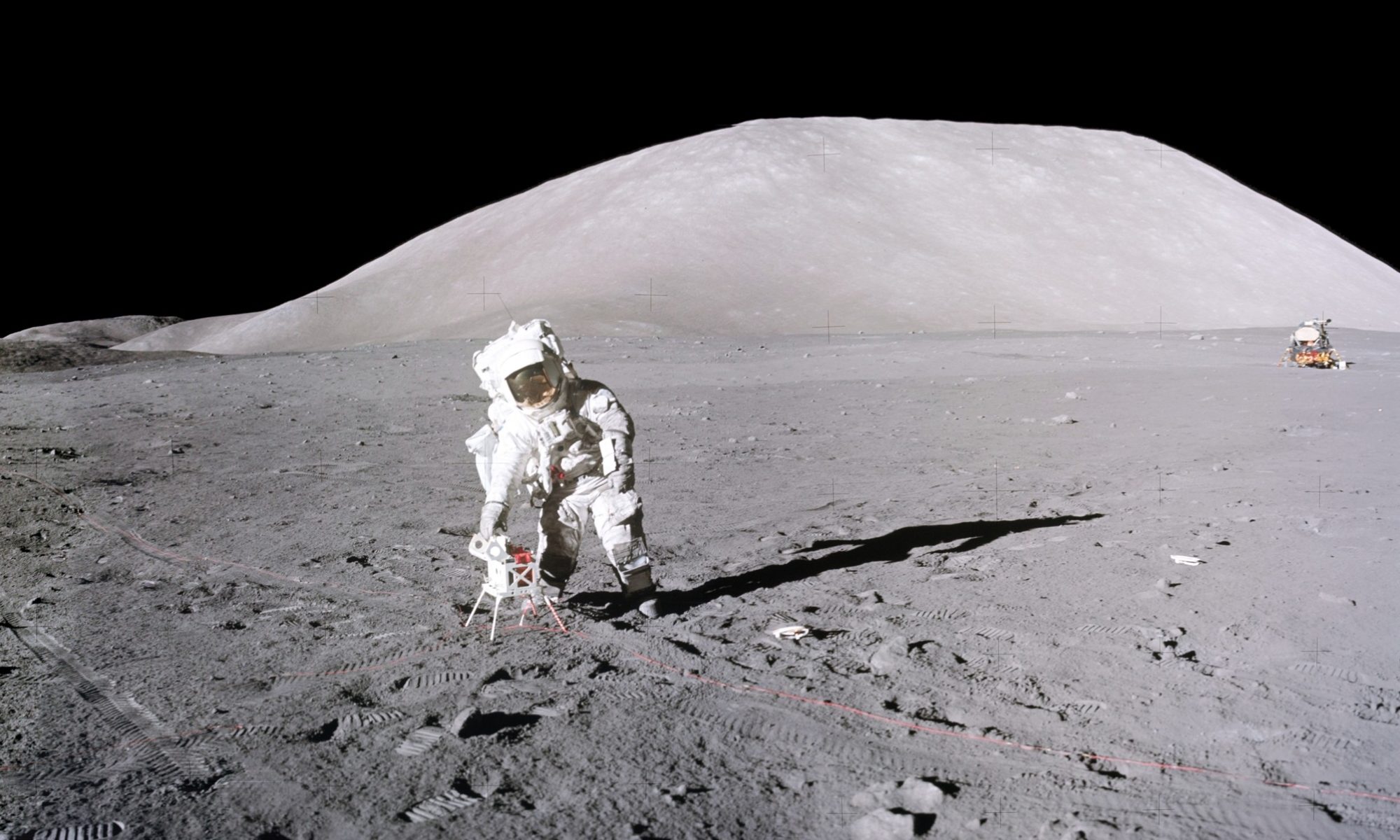Return to the Moon[1] : Rationale
by
Harrison H. Schmitt and Teresa A. Fitzgibbon
 Approaching the west coast of Mare Crisium in the Apollo 17 LM, Challenger. Gene Cernan and I are at 31 km altitude on our way to our landing site in Taurus-Littrow. Approximately 30° below and ahead of us is our CMP Ron Evans in the spacecraft America. Taurus-Littrow lies ~555 km ahead and over the horizon.
Approaching the west coast of Mare Crisium in the Apollo 17 LM, Challenger. Gene Cernan and I are at 31 km altitude on our way to our landing site in Taurus-Littrow. Approximately 30° below and ahead of us is our CMP Ron Evans in the spacecraft America. Taurus-Littrow lies ~555 km ahead and over the horizon.
The Moon has been and continues to be an imbedded part of human curiosity, history and, increasingly, of geopolitics. Apollo and other modern space activities have only emphasized, reinforced and expanded on that fact.
As an astronaut and scientist who personally participated in Apollo 17’s exploration of the Moon’s surface, I was part of a continuation of the long commitment by the human species, and more recently by Americans and our partners, to expanding human frontiers and maintaining human freedom. History documents the inherent desires in the human psyche, directly or indirectly, to explore, settle new lands, and search for freedom of action ─ from prehistoric migrations to Magellan, to Amundsen and Scott, to Lewis and Clark, to Armstrong. These desires are in the species’ DNA. The importance of the Moon today is only different from that of the past in that we know so much more now than we did then.
Geopolitically, the United States and its democratic partners again have no choice ─ the alternative to freedom determining the form of society on Earth and in space is tyranny.
Energetically, the helium-3 (3He) resources of the Moon can fuel the next technological revolutions in civilization’s access to clean and efficient energy production on Earth, in space, and to interplanetary propulsion. The overall resources of the Moon will support its settlement and helium-3 based economy as well as human exploration of the solar system.
Societally, the propulsion technologies required for lunar exploration and settlement, along with the settlements themselves, provide insurance for the long-term survival of the human species and human society against the threat of asteroid or cometary impact.
Scientifically, the impact history of the Moon holds the keys to (1) the first billion years of the Earth history, in particular, the origin of life on Earth, (2) the last billion years of the interaction of the Sun with the evolution of terrestrial and Martian (?) life, (3) the origin of the Earth-Moon system and its relationship to the formation of the solar system, and (4) the radio frequency exploration of the universe from the lunar far side.
I would say there is no viable choice for the future but to return to the Moon to stay, and to do so as soon as possible.
Copyright © by Harrison H. Schmitt, 2020. All rights reserved.
